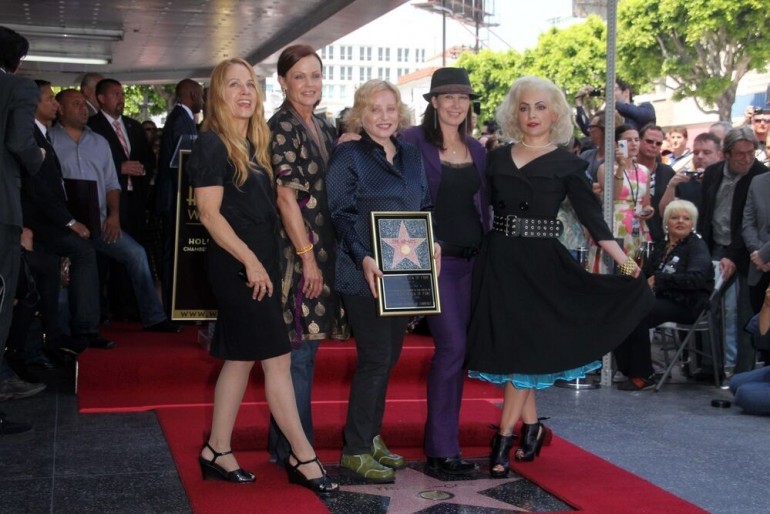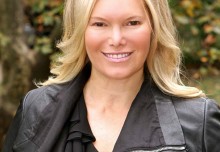
Belinda Carlisle is the lead singer for iconic all-girl group The Go-Go’s.
They’ve been going strong for decades and sold over 30 million records worldwide. But today, Belinda is going to be talking about a different aspect of her life, her transition through The Change, and sharing her perspectives on menopause and hot flashes.
Dr. Mache Seibel: Welcome Belinda and thank you for spending some time with me.
How long have the symptoms of menopause been something that you have been aware of?
Belinda Carlisle: Well, I always knew. When I was growing up, my mother had a terrible experience with menopause and 40 years ago, they did not really know a whole lot about it. She was completely debilitated and she was bed-ridden with mood swings and they wanted to put her into a psychiatric hospital.
For 30 years, always in the back of my mind I was in fear of going through that very same experience.
Dr. Seibel: So, you were just sitting there waiting for something terrible to rob of your mind and totally destroy your life and debilitate you?
Belinda: Exactly. I was doing research and I have read that just because your mother went through a bad time does not necessarily mean you will as well, but still that was always my fear. About seven years ago, I started to got a lot of mood swings and hot flashes, which to me, out of everything, feels like the worse.
On a bad day, I had up to 30 to 40 hot flashes…
In the beginning it was just like a pressure that would build up inside my head and it got a little bit hot and it would go away, I thought, “Uh!” I was in complete denial, that it was actually a hormonal thing. Then, it got to a point within a year that it was full blown hot flashes, where on a bad day, I had up to 30 to 40 hot flashes and I think I would count sometimes, just make a game out of it, and it was really, really hideous.
Dr. Seibel: How did that affect you in terms of your sleep, or your performance, or your getting on stage or your interactions with people? How did that impact?
Belinda: It is horrible. I remember being on stage in Australia on the first song feeling it coming on, like a train approaching, and I thought, “Oh my god, I can’t believe this is happening to me,” and sure enough I’d be drenched after the first song and it was debilitating. I’d have to keep a change of clothing or another shirt in my bag, just in case.
It is embarrassing. It is awful. Of course, your night sweats are not very pleasant, interrupted sleep; but for me, the worst thing about it was the hot flashes. Everything else was bad, but the hot flashes were the worst.
Dr. Seibel: When did you decide to talk about it openly? Because a lot of women try to keep menopause a secret and just keep a stiff upper lip and not let on because it is almost an admission that they are older and for some that is embarrassing.
Belinda: Well, I wanted to do something about it and I didn’t want to do HRT (hormone replacement therapy). I knew about bioidentical hormone replacement. I went to see my bioidentical doctor who did my blood work and said, “Listen, you do not have that much estrogen, but before we go to any sort of replacement with bioidentical replacement I want you to try this,” and he pulled out a little device and it snaps into your underwear and I kind of rolled my eyes and thought, oh yeah, right.
He said, “We’ve been having a lot of luck with this and there have been a lot of studies with it. This device has magnetic qualities, which balances your autonomic nervous system, which in fact affects your hormones. Just give this a try before we start doing any further hormonal replacement.” So, I took it home. He said that sometimes it works immediately; sometimes it takes a few days. I went from 30 to 40 hot flashes a day to zero within three days, and that is the only reason why I’m talking about something that really, for most people, is a very taboo subject. I mean, people do not even want to say the word menopause, especially men.
Dr. Seibel: This is your LadyCare product that you are talking about?
Belinda: Yeah. I’ve been using it for about six years, I was an unpaid spokesperson for them for a couple of years because I felt this is something that women who didn’t want to do hormonal replacement and/or that could not afford it needed to know about. It has magnetic qualities, and you snap this little device into your underwear and it completely changed my life. That is why I am talking about it; otherwise, believe me, I wouldn’t be talking about it because it is an admission of growing older and maybe that the end is near. It makes you face your mortality, but for me, I realized that it is just another phase in my life.
Dr. Seibel: What was your thinking, in terms of the HRT and estrogen? What was going through your mind when you said you did not want to use it? I am trying to understand your thinking, because in addition to hot flashes, estrogen has a positive impact on bones and vaginal dryness and whole host of other things…
Belinda: Well, like I said, I watched my mother for years trying to get her HRT balance right, and it never ever seemed to be right and there was always a disaster.
Dr. Seibel: You feel that your mother’s issue was a failure of HRT to get balanced, as opposed to maybe some issue your mom was dealing with in addition to menopause?
Belinda: I attributed to her that not being able to get the balance right and I know that hormones are very tricky; but besides that, I did a lot of reading on it and all of the downsides of HRT and I started picking up Susan Summers’ books and reading a lot of bioidentical hormones.
I thought, if I took hormones that is what would have happened to me; and bioidentical hormones, for the most part are not really covered by insurance.
Dr. Seibel: Oh yes they are.
Belinda: Oh, they are?
Dr. Seibel: Yes. Bioidentical just means that the chemical structure is identical to the estrogen that your body naturally makes. The bioidenticals that Susan Summers talks about from compounding pharmacies are the same as the bioidenticals from chain drugstores. Neither bioidentical hormone is natural; the only plant it comes from is a chemical plant. Compounding pharmacies take a bit of a hormone and mix it into a substance that you rub on your skin typically. It is the same idea as if you went into an ice cream store and you order vanilla with chocolate chips. Sometimes after they stir in the chips there are more chocolate chips in one bite and sometimes there are less chocolate chips in another bite. It does not distribute equally so doses often vary.
Belinda Carlisle: Okay.
Dr. Seibel: When the same bioidentical hormone is in a prescription from an FDA-regulated company patch, spray or gel, the doses are very consistent and usually covered by insurance.
Belinda: Well, mine are not. I’ve had that overseas, so that is probably why. But a lot of women who can’t take hormones either because they’re cancer survivors, or for other reasons can’t go in that direction. I have had incredible results; so that is the reason why I am talking about it. It’s an option that I think women should at least look at and it is very interesting, and it works for me.
Dr. Seibel: Yes, of course. Is LadyCare available in the United States?
Belinda: You can order on the website at ladycareusa.com; you can get on Amazon, too. It is a UK-based company and you can see the statistics on the website and see what it is about.
Dr. Seibel: What does the device cost?
Belinda: I think in this country it is about $50. It is basically a magnet that come in two parts and it snaps into your underwear. That’s it, and it doesn’t have any batteries. You do not see it. It is about the size of a silver dollar and it is the best thing since sliced bread, I think.
Dr. Seibel: How often do you keep it on; all the time, or do you take it off?
Belinda: Well, it has an accumulative effect where in the beginning I wore it every single day for probably two years, and now sometimes I will either forget or might take a break from it for a few weeks, I have no symptoms, and then all the sudden I am feeling that pressure sometimes, and I put it back on and then I am fine. In the beginning you definitely should wear it every day.
Dr. Seibel: What about bedtime?
Belinda: I wore it to bed, too. Twenty-four hours. Take it off when you bathe and that is about it.
Dr. Seibel: Well, that is an interesting new approach for someone who wants to try alternatives not only to estrogen but also alternatives to medications per se because this is working by a different technique by creating a magnetic field, you are saying, that affects the way your nerve stimulate hot flash production.
Belinda: Well, what it does, I am looking at $69 actually, and I am looking in Amazon. It affects autonomic nervous system, which is affected by hormonal imbalance, so it doesn’t even touch your hormones.
Dr. Seibel: Well, it is an interesting approach that’s available for people to consider. Are you using anything else to help you with other aspects of this transitional time in your life?
Belinda: Sometimes I use a little bit of Progestogel in the evenings, and DHEA; and that is about it. I get my blood work done sometimes twice a year, just to keep it in the right track. My estrogen level is pretty low but I feel great and there is no need for me to do anything different for the moment.
Dr. Seibel: Well, it is working well for you and that is awesome. Let me ask you, in terms of your music career, what are your plans going forward? Tell me about your newest record or what are you planning to do in terms of touring?
Belinda: I am busy all the time actually. I have an album coming out next year. I have been really into Kundalini yoga and I’ve just finished my teacher training.
Dr. Seibel: I actually wrote a Kundalini yoga book, A Woman’s Book of Yoga, with Hari Kaur Khalsa, that was published by Penguin Putnam. It shows the east-west connection. All of those things that happen in yoga are due to changes physiologically in your body.
Belinda: Oh, that is so cool! Yeah, it changed my life. I’ve been doing a really consistent practice for the past 10 years since I have been sober, and I’ve been really into it now. I do a little bit of solo touring. I’ve been living in France for 23 years. I have a project in Kolkata, India; so I am doing stuff all the time. I am just having an amazing life.
Dr. Seibel: You got a star on the Hollywood Walk of Fame did you not?
Belinda: Yeah! That was pretty amazing, I have to say. That was surreal.





